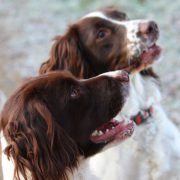Mortality related to general anaesthesia and sedation in dogs under UK primary veterinary care
Mortality related to general anaesthesia and sedation in dogs under UK primary veterinary care

Open Access
In our edition of: Oct 2022
In our categories of: small animals
our summary:
Shoop-Worrall, S.J.W. et al. (2022) Mortality related to general anaesthesia and sedation in dogs under UK primary veterinary care. Veterinary Anaesthesia and Analgesia, 49 (5) pp. 443-442.
The aim of this nested case control study was to investigate the risk factors for general anaesthesia (GA)/sedative-related deaths overall and for neuter-specific procedures in dogs at UK primary care veterinary practices.
Study cases were selected from the VetCompass animal surveillance database of dogs that had at least one GA/sedative procedure recorded between 2010 and 2013. A GA/sedative-related death was identified if it had occurred within 48 hours or two weeks of GA/sedation where the GA/sedative agent could not be reasonably excluded as a contributory factor in the death. The control group was randomly selected from the remaining dogs that had undergone at least one GA/sedation episode, with four unmatched dogs for each case dog.
There were 157,318 dogs that had at least one GA/sedative event, of these 1,396 died from all causes within two weeks. Of these 1,396 dogs, 219 (0.14%) died within two weeks and 159 (0.10%) died within 48 hours where anaesthesia could not be reasonably excluded as a potentially contributing factor.
Of 89,852 dogs that underwent neutering-specific procedures, there were eight (0.009%) GA/sedative-related deaths within two weeks and five (0.006%) within 48 hours.
Risk factors for GA/sedative-related deaths within two weeks included older age, with 5-7 year olds and 7-9 year olds both having 4.9 times the odds, and dogs over 9.0 year olds having 12.8 times the odds compared to 0.5-1.5 year olds. Dogs with an American Society of Anaesthesiologists (ASA) score of III had 4.8 times the odds and those with ASA scores of IV-V had 19.0 times the odds of those with a score of I or II. Compared with mixed breeds, West Highland White Terriers and Rottweilers had greater odds and Cocker Spaniels had lower odds of GA/sedative death.
The risk factors for GA/sedative-related deaths within 48 hours were similar to those within two weeks, although in this case it was the West Highland White Terrier and German Shepherd that had the greatest odds of GA/sedative death. In addition, dogs that required emergency procedures had higher odds of GA/sedative-related death compared to those undergoing routine procedures, and dental procedures were associated with 8.5 times the odds of compared with diagnostic procedures.
Limitations of the study are the potential errors in determining a death outcome from clinical notes as they rarely state ‘GA/sedative-related’ as the cause of death. Small breed sample sizes mean that the breed-specific odds ratios should be interpreted with caution. The data used in the study is ten years old.
The result of the study provides useful information on the overall risk of GA/sedative-related deaths in dogs, as well as information on increased risk factors related to GA/sedation, which will be helpful in discussions with owners and assist in the process of shared decision-making.
Claiming CPD for reading inFOCUS articles
Reading and reflecting on articles can count towards your CPD, and we have a template to help you with the process.
Image copyright attribute: stockbroker
Join the discussion
We encourage discussion on all material highlighted in each edition of inFOCUS. Use the button below to join the conversation on Twitter and include your comment in the feed for this issue.







Leave a Reply
Want to join the discussion?Feel free to contribute!